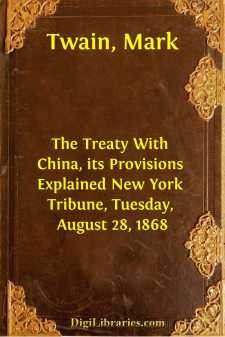Categories
- Antiques & Collectibles 13
- Architecture 36
- Art 48
- Bibles 22
- Biography & Autobiography 813
- Body, Mind & Spirit 142
- Business & Economics 28
- Children's Books 17
- Children's Fiction 14
- Computers 4
- Cooking 94
- Crafts & Hobbies 4
- Drama 346
- Education 46
- Family & Relationships 57
- Fiction 11829
- Games 19
- Gardening 17
- Health & Fitness 34
- History 1377
- House & Home 1
- Humor 147
- Juvenile Fiction 1873
- Juvenile Nonfiction 202
- Language Arts & Disciplines 88
- Law 16
- Literary Collections 686
- Literary Criticism 179
- Mathematics 13
- Medical 41
- Music 40
- Nature 179
- Non-Classifiable 1768
- Performing Arts 7
- Periodicals 1453
- Philosophy 64
- Photography 2
- Poetry 896
- Political Science 203
- Psychology 42
- Reference 154
- Religion 513
- Science 126
- Self-Help 84
- Social Science 81
- Sports & Recreation 34
- Study Aids 3
- Technology & Engineering 59
- Transportation 23
- Travel 463
- True Crime 29
Sort by:
by:
William Roscoe
INTRODUCTION. Early in the present century John Harris—one of the successors to the business of "Honest John Newbery," now carried on by Messrs Griffith & Farran at the old corner of St. Paul's Churchyard—began the publication of a series of little books, which for many years were probably among the most famous of the productions of the House. Now, however, according to the fate...
more...
by:
Ford Madox Ford
Magister Nicholas Udal, the Lady Mary's pedagogue, was very hungry and very cold. He stood undecided in the mud of a lane in the Austin Friars. The quickset hedges on either side were only waist high and did not shelter him. The little houses all round him of white daub with grey corner beams had been part of the old friars' stables and offices. All that neighbourhood was a maze of dwellings...
more...
by:
Robert Barr
REVENGE! AN ALPINE DIVORCE. In some natures there are no half-tones; nothing but raw primary colours. John Bodman was a man who was always at one extreme or the other. This probably would have mattered little had he not married a wife whose nature was an exact duplicate of his own. Doubtless there exists in this world precisely the right woman for any given man to marry and vice versâ; but when you...
more...
by:
Various
M. De Tocqueville is one of the greatest, perhaps the very greatest, of the political philosophers of the present day. Alone of all his contemporaries, his best works will bear a comparison with those of Machiavelli and Bacon. Less caustic and condensed than Tacitus, less imaginative and eloquent than Burke, he possesses the calm judgment, the discriminating eye, and the just reflection, which have...
more...
by:
H. R. Hill
ADVERTISEMENT. The following observations were thrown together as the result of communications with several gentlemen locally acquainted with the Isthmus of Panama, and who expressed to the writer their astonishment, that amidst the numerous undertakings, of more or less utility, which science has realised in our time, one so important to the whole commercial world, so easy of accomplishment, and so...
more...
by:
Various
SOME OF THE HAUNTS OF BURNS. BY A TOURIST WITHOUT IMAGINATION OR ENTHUSIASM. We left Carlisle at a little past eleven, and within the half-hour were at Gretna Green. Thence we rushed onward into Scotland through a flat and dreary tract of country, consisting mainly of desert and bog, where probably the moss-troopers were accustomed to take refuge after their raids into England. Anon, however, the hills...
more...
by:
Mark Twain
ARTICLE I.His Majesty, the Emperor of China, being of the opinion that in making concessions to the citizens or subjects of foreign Powers of the privilege of residing on certain tracts of land, or resorting to certain waters of that Empire for the purposes of trade, he has by no means relinquished his right of eminent domain or dominion over the said land and waters, hereby agrees that no such...
more...
by:
E. B. Havell
AGRA Historical Introduction Agra has two histories: one of the ancient city on the east, or left, bank of the river Jumna, going back so far as to be lost in the legends of Krishna and of the heroes of the Mâhabhârata; the other of the modern city, founded by Akbar in A.D. 1558, on the right bank of the river, and among Muhammadans still retaining its name of Akbarabad, which is intimately...
more...
Mel Gray flung down his hoe with a sudden tigerish fierceness and stood erect. Tom Ward, working beside him, glanced at Gray's Indianesque profile, the youth of it hardened by war and the hells of the Eros prison blocks. A quick flash of satisfaction crossed Ward's dark eyes. Then he grinned and said mockingly. "Hell of a place to spend the rest of your life, ain't it?" Mel Gray...
more...
CHAPTER I Dr. Lavendar and Goliath had toiled up the hill to call on old Mr. Benjamin Wright; when they jogged back in the late afternoon it was with the peculiar complacency which follows the doing of a disagreeable duty. Goliath had not liked climbing the hill, for a heavy rain in the morning had turned the clay to stiff mud, and Dr. Lavendar had not liked calling on Benjamin Wright. "But,...
more...











